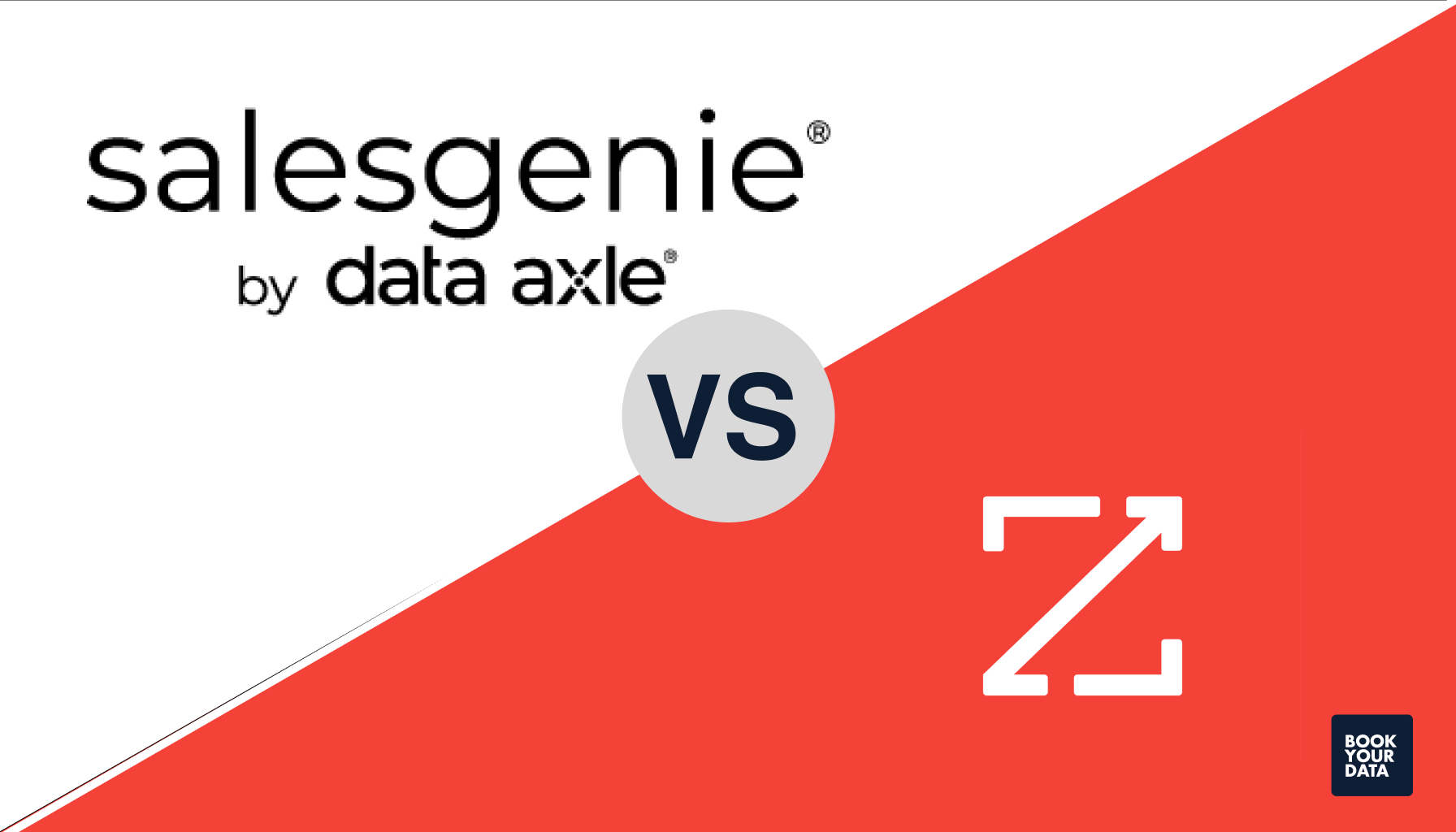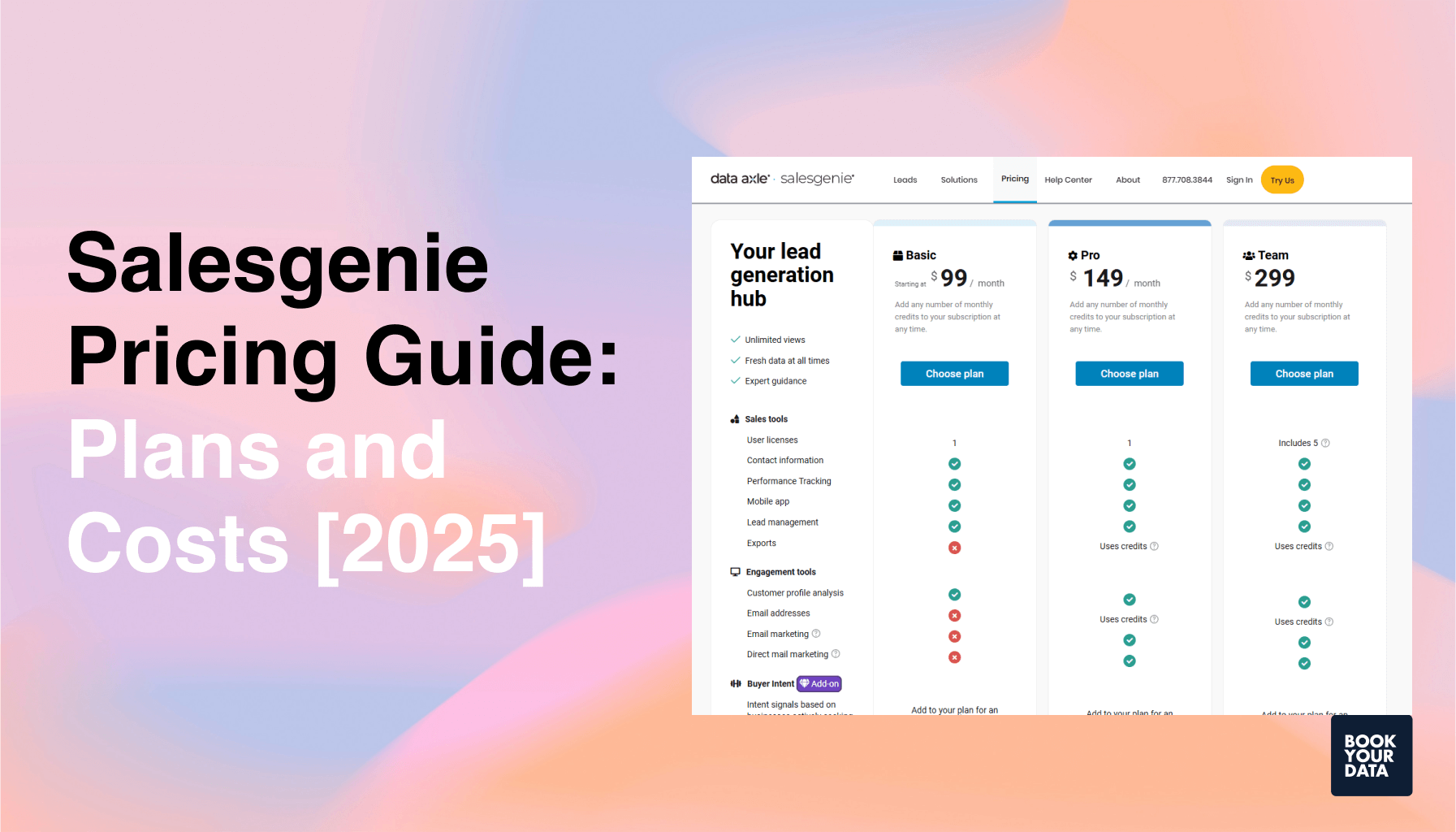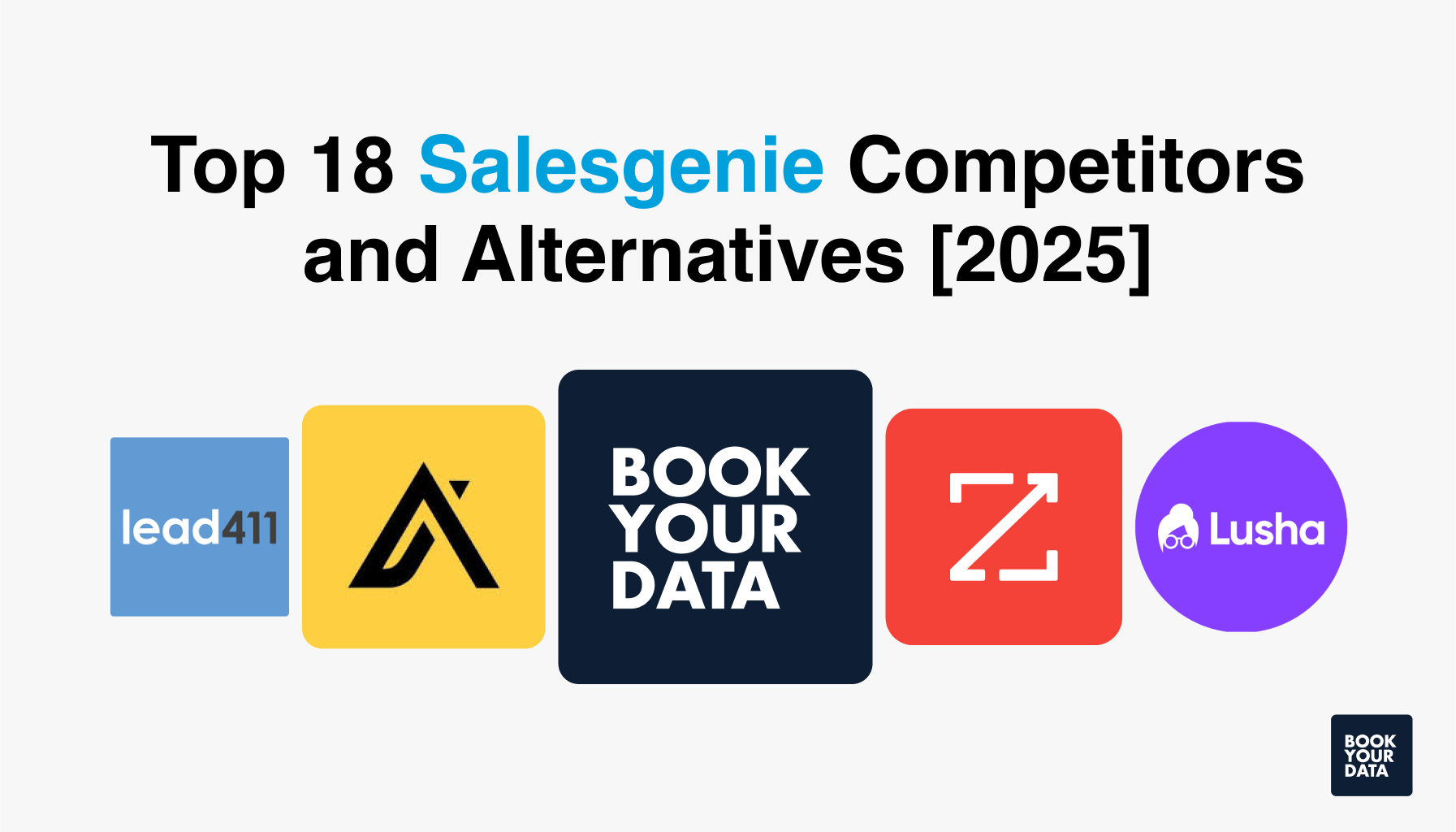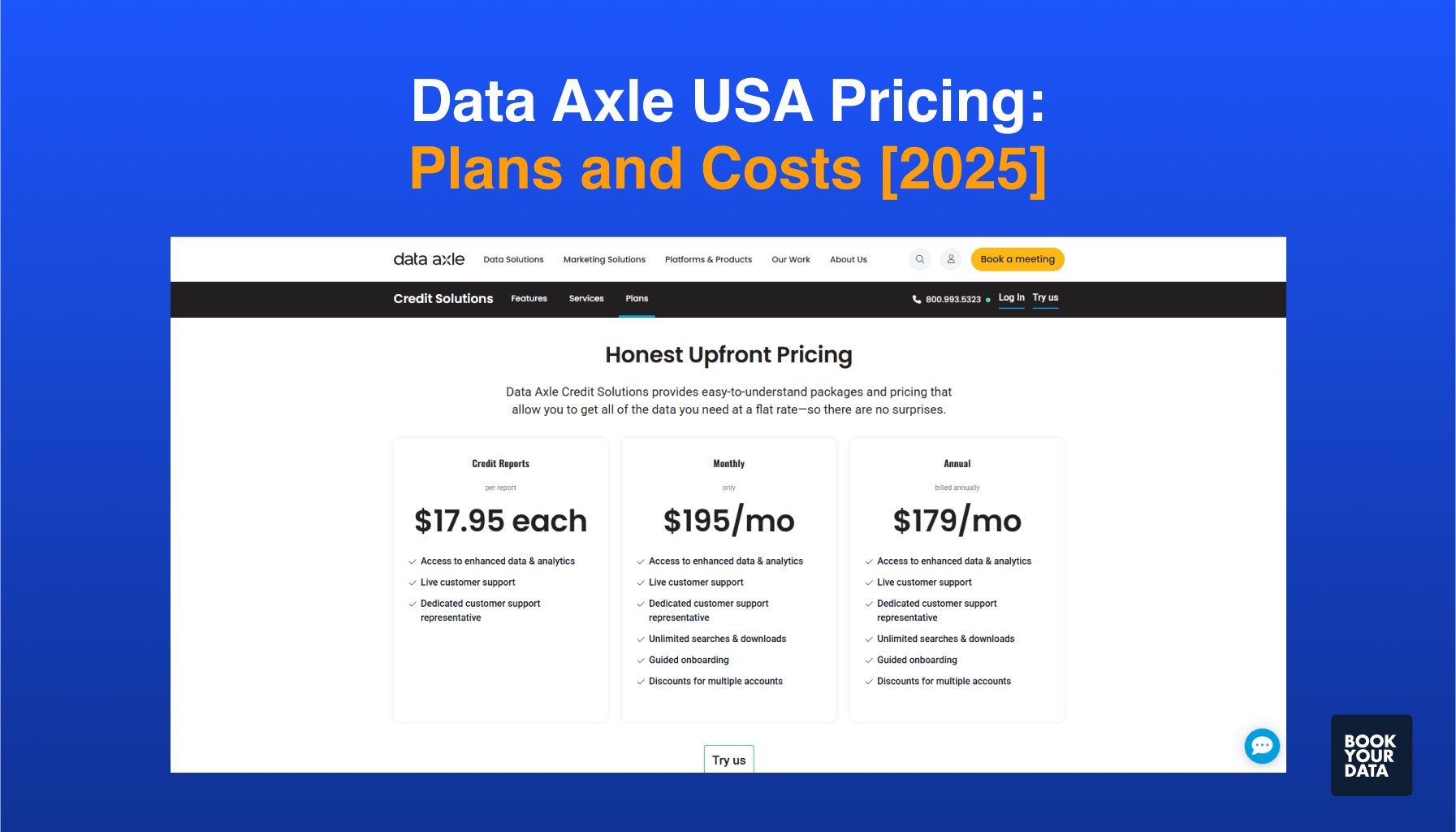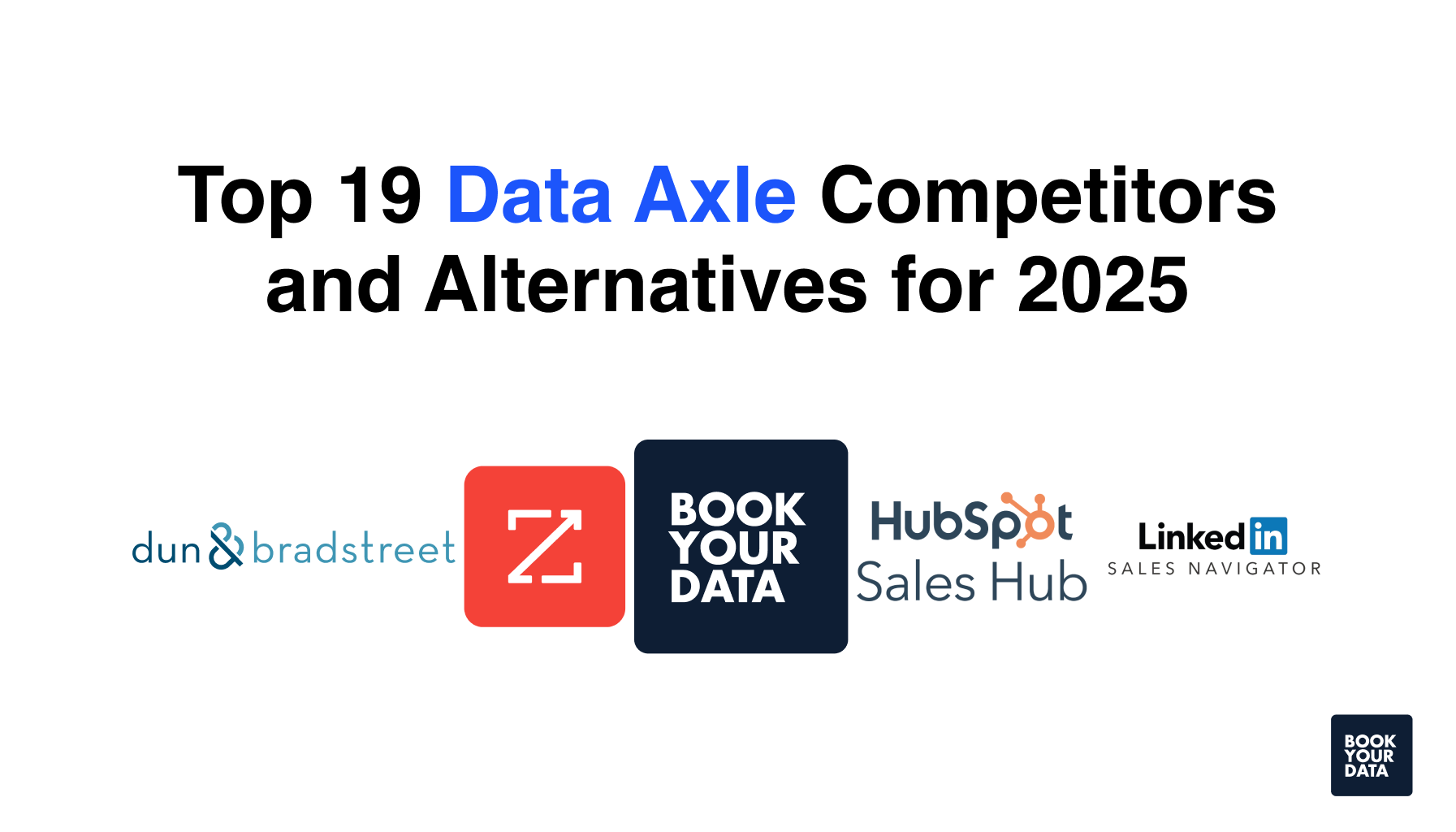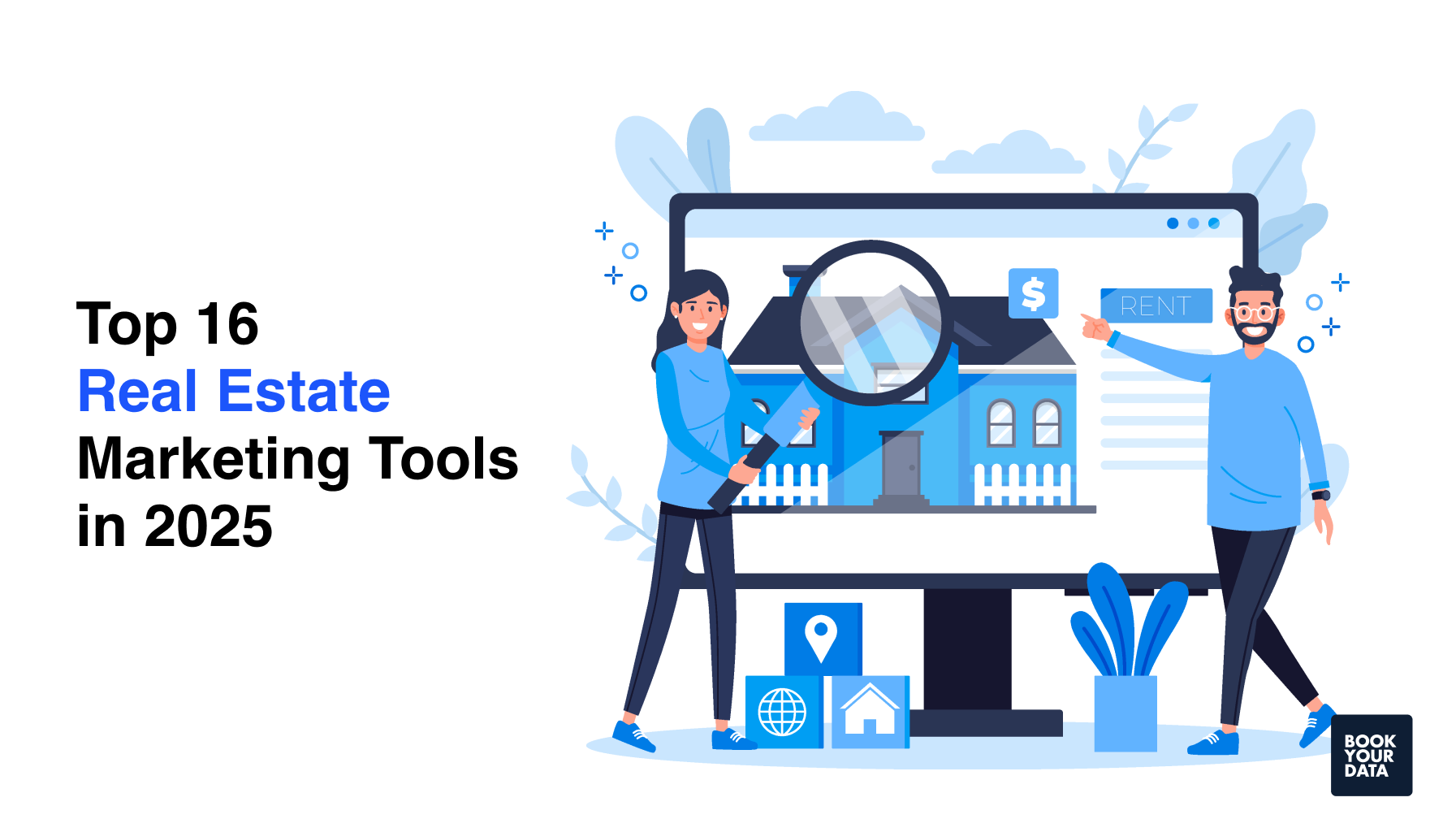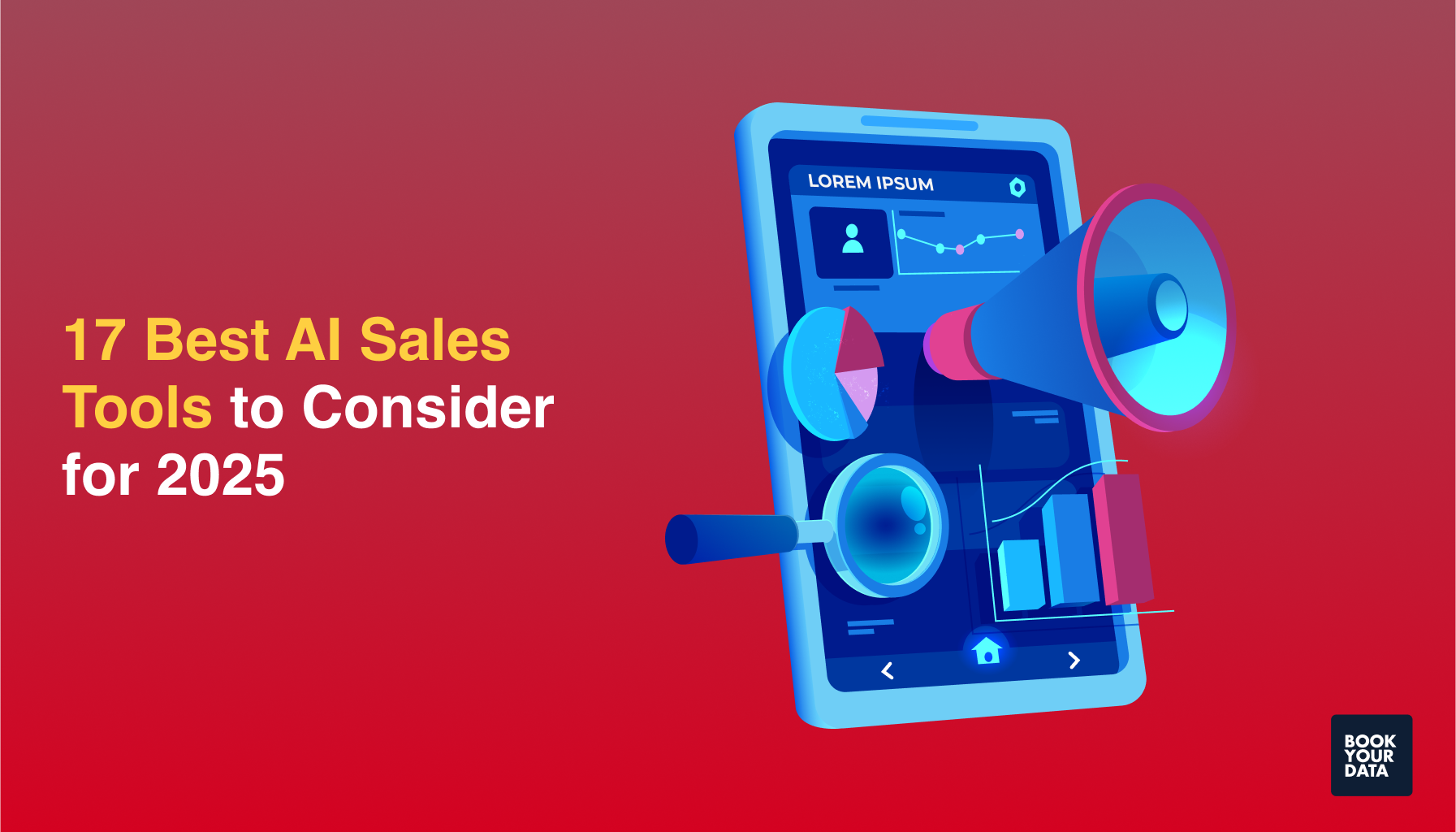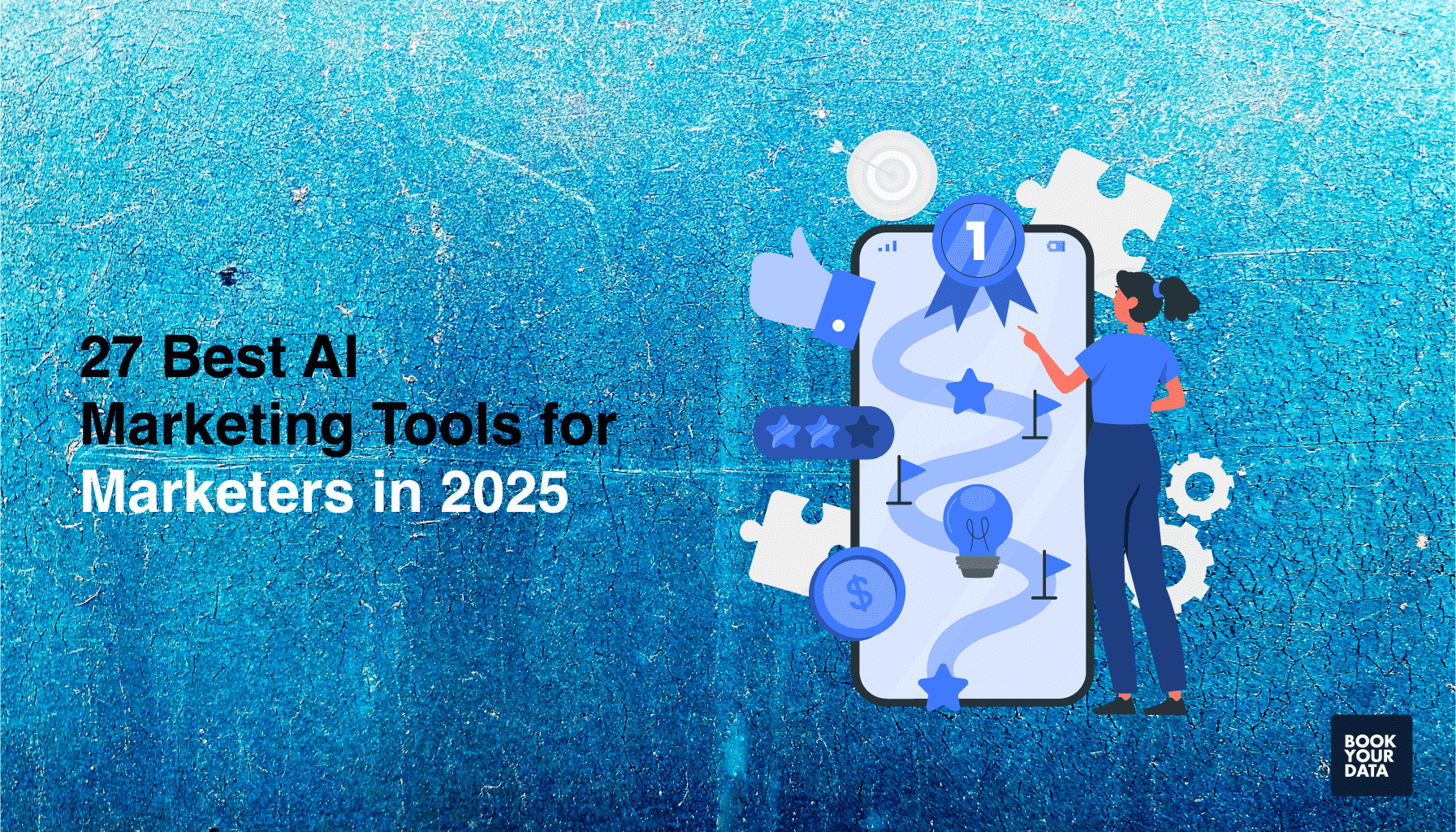12 Effective Strategies for Marketing to Doctors in 2025
Marketing to doctors refers to the strategic promotion of medical products, services, or solutions directly to healthcare professionals. The purpose of marketing to doctors is to inform, engage, and influence physicians' decisions regarding patient care, prescriptions, or referrals.
Marketing to doctors is important for healthcare professionals because it helps build trusted relationships, increases referrals, and helps the right solutions reach the right referrals.
B2B prospecting tools like BookYourData help healthcare brands to market to doctors by providing targeted contact lists of different healthcare professionals. After purchasing a verified list from BookYourData, businesses can email doctors who are interested in their service.
The effective strategies for marketing to doctors are mentioned below.
1. Market to doctors and physicians in their daily lives: Reach doctors through the platforms and tools they already use, such as professional networks, medical applications, and email.
2. Define your doctor audience: Clearly identify which types of doctors you want to reach based on their specialty, location, and patient demographics to ensure your message is relevant.
3. Review the HCP's career path for targeted campaigns: Understanding where a doctor is in their career, whether they’re in training, early in practice, or well established, helps to customize your messaging to their specific needs.
4. Segment the doctor's persona: Break down your audience into specific personas by analyzing their behavior, interests, and preferences to create more personalized and effective campaigns.
5. Target physicians with precision using First-Party Data: Use data you’ve collected directly, such as website visits or previous interactions, to target doctors who have already shown interest in your brand or services.
6. Maintain Privacy Standards and Regulatory Compliance: Ensure all marketing efforts comply with healthcare regulations like HIPAA and GDPR to protect sensitive information and maintain professional trust.
7. Deliver educational and outcome-focused messaging: Provide content that helps doctors stay informed and improve patient outcomes, such as clinical insights, research updates, or treatment case studies.
8. Design a smooth and mobile-optimized user experience: Make sure all digital content, including emails and landing pages, is easy to use on mobile devices since many doctors access information on their phones.
9. Continuously Optimize Campaigns with Real-Time Metrics: Monitor how doctors interact with your campaigns and use real-time data to make ongoing improvements and increase engagement.
10. Connect HCP and Patient Insights for Smarter Targeting: Combine insights about physicians with patient data to customize your message according to real-world clinical needs and improve relevance.
11. Use AI and Automation to Scale with Precision: Use automation and artificial intelligence to deliver timely, personalized content at scale without sacrificing quality or effectiveness.
12. Maintain Trust Through Strategic In-Person Interactions: Support your digital strategy with face-to-face engagement through events, conferences, or office visits to build credibility and long-term relationships.
1. Market to doctors and physicians in their daily lives
Doctors and physicians are nowadays active on digital platforms such as LinkedIn, X, Facebook, and more. They share events from their personal and professional lives because it helps them build identity, express empathy, and connect more on a human level.
Marketing to doctors through their personal platforms is important because that is where they spend time, engage more authentically, and trust content that resonates with their lives. Many physicians feel social media platforms are beneficial for learning, staying updated, and sharing their perspectives.
Reaching doctors through their personal channels means better visibility, increased engagement, and higher trust. Businesses that send messages that feel personal instead of general pitches are likely to have more influence and maximize their credibility.
2. Define your doctor audience
Defining your doctor audience is important because each of them differs in specialties, patient demographics, and professional goals. A cardiologist’s needs, for example, differ from a dermatologist’s, and targeted communication helps businesses stay more relevant. Once marketers define their target audience by understanding a physician’s specialty and practice setting, they can tailor messages that resonate with daily challenges and decision-making responsibilities.
Marketers can also reach out to doctors, assistants, or nurses if reaching out directly to them is not possible. Another method to effectively reach out to doctors to provide them with useful resources, as doctors value information that helps them improve patient care or stay updated. Businesses also need to update their records regularly to avoid wasting time and money because physicians often change roles and contact details. This also helps to improve response rates and make your campaign effective instead of missing opportunities.
3. Review the HCP's career path for targeted campaigns
It is important for marketers to understand the HCP (Healthcare Professional) career path for designing campaigns that contain a customized message and connect at the right time. There are different stages in a doctor’s career, such as early-career, middle-career, and late-career, which means that needs, preferences, and opportunities are also different.
Physicians who have just started their career prioritize building clinical skills, gaining research experience, networking, and proving themselves. Marketers can engage this group with educational content, mentorship programs, case studies, opportunities to publish, access to training or certifications, and support resources.
Physicians who are in the middle of their career prefer to balance patient care with leadership opportunities, such as supervising and teaching. Marketers can create content that contains peer-reviewed studies, practice management tips, webinars with specialists, or digital tools that reduce burden.
Physicians who are established or seniors face challenges like maintaining relevance and keeping up with the latest advancements, such as AI. Marketers must offer them leadership content, involvement in advisory boards, and opportunities for speaking. Physicians in different stages of their career also prefer different channels, such as the young ones prefer social media, while the seniors still read journals and newspapers.
4. Segment the doctor's persona
Marketers need to divide a doctor’s persona by understanding their individual preferences, behaviors, and communication styles. Persona segmentation means how the doctors within the same stage of their career have different priorities, such as some are technology-focused and want to try digital tools, while others are practical-care focused and prioritize patient relationships and clinical efficiency.
Effective persona segmentation allows marketers to customize their messaging according to specific challenges. A technology-oriented doctor might respond to content about data analytics in healthcare, while a practical-focused physician may prefer resources on patient communication or time management.
Doctors in the middle of their career will value mentorship and administrative tools, while their peers who are more dedicated to clinical practice may prefer evidence-based treatment updates. This personalization helps a lot, as when doctors feel a message speaks directly to their needs, they are more likely to interact, respond, and build long-term trust with a business.
5. Target physicians with precision using first-party data
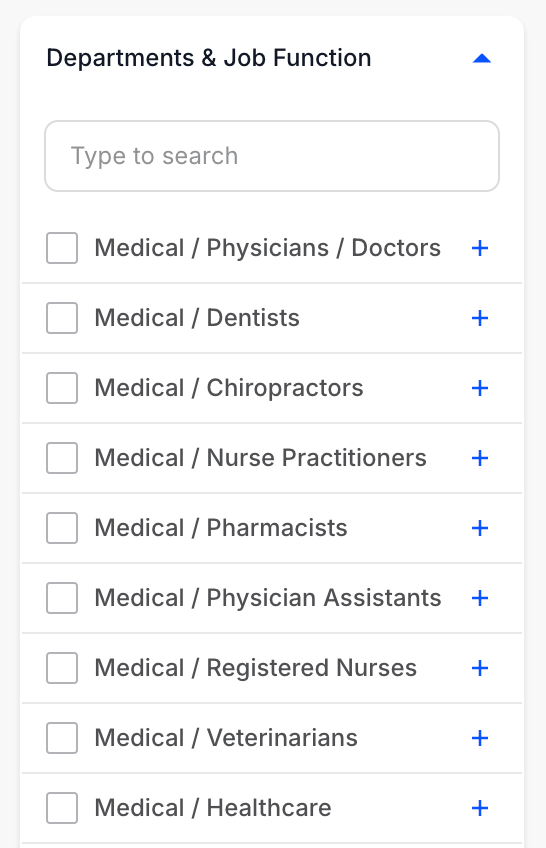
First-party data helps marketers target physicians in a personalized and compliant way. It is not like third-party data and comes directly from professionals' own interactions, which makes it more accurate and privacy-friendly. Marketers can use this data to move beyond generic outreach campaigns and deliver relevant content at the right time. Some examples include tracking website behavior to see what topics doctors are researching, and monitoring email engagement to understand which emails are getting the most open rates.
Marketers can also analyze webinar participations to identify areas of interest and collect survey inputs to capture stated preferences. Some advanced platforms now integrate this first-party data into marketing systems to allow real-time personalization, such as if a physician clicks on oncology-related content during a webinar, the system can automatically follow up with oncology-focused case studies or product information.
6. Maintain privacy standards and regulatory compliance
Maintaining privacy standards and regulatory compliance is essential because physicians and patients expect B2B platforms to protect their data. Any misuse can damage trust and expose organizations to legal risks. This is why marketers must maintain compliance at every stage of marketing and develop a secure data management system to safeguard sensitive information from breaches.
Informed consent is also important, and doctors must know how marketers are using their data. Transparent practices, supported by updated privacy policies, build credibility with healthcare professionals. Staff training is also important, and teams must stay updated on HIPAA, GDPR, and other state laws to make sure that everything is according to regulatory requirements. Marketers must ask for consent when using testimonials or social proof in campaigns to remain authentic and maintain trust. Compliant AI tools can support personalized marketing by analyzing preferences while respecting privacy rules.
7. Deliver educational and outcome-focused messaging
Delivering educational and outcome-focused messaging is important because doctors care most about improving patient outcomes, not product features. This is why marketers must customize their messaging with clinical impact rather than sales-driven claims.
When marketers personalize content for career stages and specialties, it becomes more relevant and engaging. Marketers do not need to emphasize product specifications, but rather how treatments or tools will improve patient health. The best way is to use measurable outcomes, such as faster recovery times, to build credibility. Formats like webinars, ebooks, blogs, and videos are the best ways to deliver educational content and help doctors understand that your business stays updated with the latest medical advancements.
Marketers need to remember that doctors are looking for solutions and not sales pitches, and focus more on clinical value and evidence to build stronger connections.
8. Design a smooth and mobile-optimized user experience
Designing a smooth and mobile-optimized user experience is important because most people log in from their mobiles. The post-click experience matters in the same way as your ad matters because if your landing page does not load up quickly, it will fail to gain the attention of doctors, as they are busy professionals.
Pages must load quickly on mobiles, and simplifying the forms encourages action without frustrating users. The landing page must have valuable content such as personalized recommendations, case studies, and research to show that you understand a doctor’s needs. Analytics and feedback tools allow marketers to monitor how physicians interact with pages in real-time.
Marketers can analyze the data and refine user experiences and improve engagement with every campaign. Nowadays, doctors also prefer digital formats such as emails, mobile alerts, and like to attend online webinars, so your website must market such webinars effectively.
9. Continuously optimize campaigns with real-time metrics
Tracking every interaction across devices and channels is essential for optimizing healthcare campaigns. Doctors engage with you through emails, the website, or webinars, and each of these sources reveals valuable intent.
First-touch attribution highlights awareness-building efforts, last-touch attribution emphasizes closing tactics, and algorithmic models balance credit across multiple interactions that depend on campaign goals. Marketers can analyze vast interaction data and use AI tools to predict behaviors and suggest optimizations.
Key metrics that marketers can monitor are website traffic, appointment conversions, engagement with educational content, and overall ROI (Return on Investment). Real-time analytics help to make the right decisions, such as if a message underperforms with hospital-based physicians, marketers can improve it through research.
Private practice doctors may respond better to efficiency-focused resources and require different KPIs than hospital systems, where collaboration and cost-effectiveness are important. Marketers can also get help from AI for insights, such as detecting shifts in physician behavior and market trends. Refining your messages continuously according to these insights creates stronger engagement, better targeting, and long-term success.
10. Connect HCP and patient insights for smarter targeting
Connecting HCPs (Healthcare Professionals) and patient insights is essential for smarter targeting. When prescribing patterns connect with patient adherence, satisfaction, or outcomes, marketers gain a clearer picture of real-world impact.
When marketers link HCP messaging with measurable patient results, the campaigns resonate more. Marketers must also analyze prescribing data along with patient behavior to customize messages that support patient education. Patient feedback is also important to make the campaign successful, as it blends both clinical and experiential perspectives.
Marketers can also personalize communications with physicians by getting insights from prescription records, so doctors get content according to their patients' needs. AI and predictive analytics further help with this by identifying HCPs treating patients with rising trends.
11. Use AI and automation to scale with precision
Marketers can use AI and automation to scale with precision, as predictive analytics can anticipate HCP or patient needs and allow them to avoid generic pitches and messages that reach at the right moment. Automation also transforms daily operations as chatbots and virtual assistants handle inquiries or appointment bookings 24/7 and allows staff to focus on higher-value tasks.
Content personalization allows marketers to customize messages to an individual physician’s specialty or a patient’s stage of care. Marketers can segment based on behavior, demographics, or clinical indicators to make campaigns more relevant and impactful.
Automated email campaigns, scheduled social content, and AI-assisted content creation simplify workflows while keeping quality high. But scaling with AI requires trust, as marketers need to meet privacy and compliance safeguards to protect sensitive data while meeting HIPAA (Health Insurance Portability and Accountability Act) and GDPR (General Data Protection Regulation Compliance) standards. The best way is to integrate AI tools with existing CRMs such as Salesforce and HubSpot to optimize the workflow.
12. Maintain trust through strategic in-person interactions
Now everything is digital, but strategic in-person interactions are still the best way to maintain trust. Conferences and medical events give doctors space to explore trends, engage with peers, and discover solutions in a way digital formats can not fully replace.
Face-to-face conversations allow for deeper, more personal exchanges and help marketers strengthen their relationships. But physicians need to choose events that align with their personality and interests to reach the most relevant physician audiences. Sponsoring speaker sessions or panel discussions positions your business as a thought leader, while distributing branded educational resources provides lasting value that doctors can carry back to their practice.
Events also offer unmatched opportunities to expand networks with peers, referral sources, and industry influencers. Promoting your involvement before, during, and after on social media extends engagement beyond the venue. Finally, following up quickly with personalized outreach ensures conversations continue and converts your event interactions into long-term partnerships.
How BookYourData helps healthcare brands market to doctors?
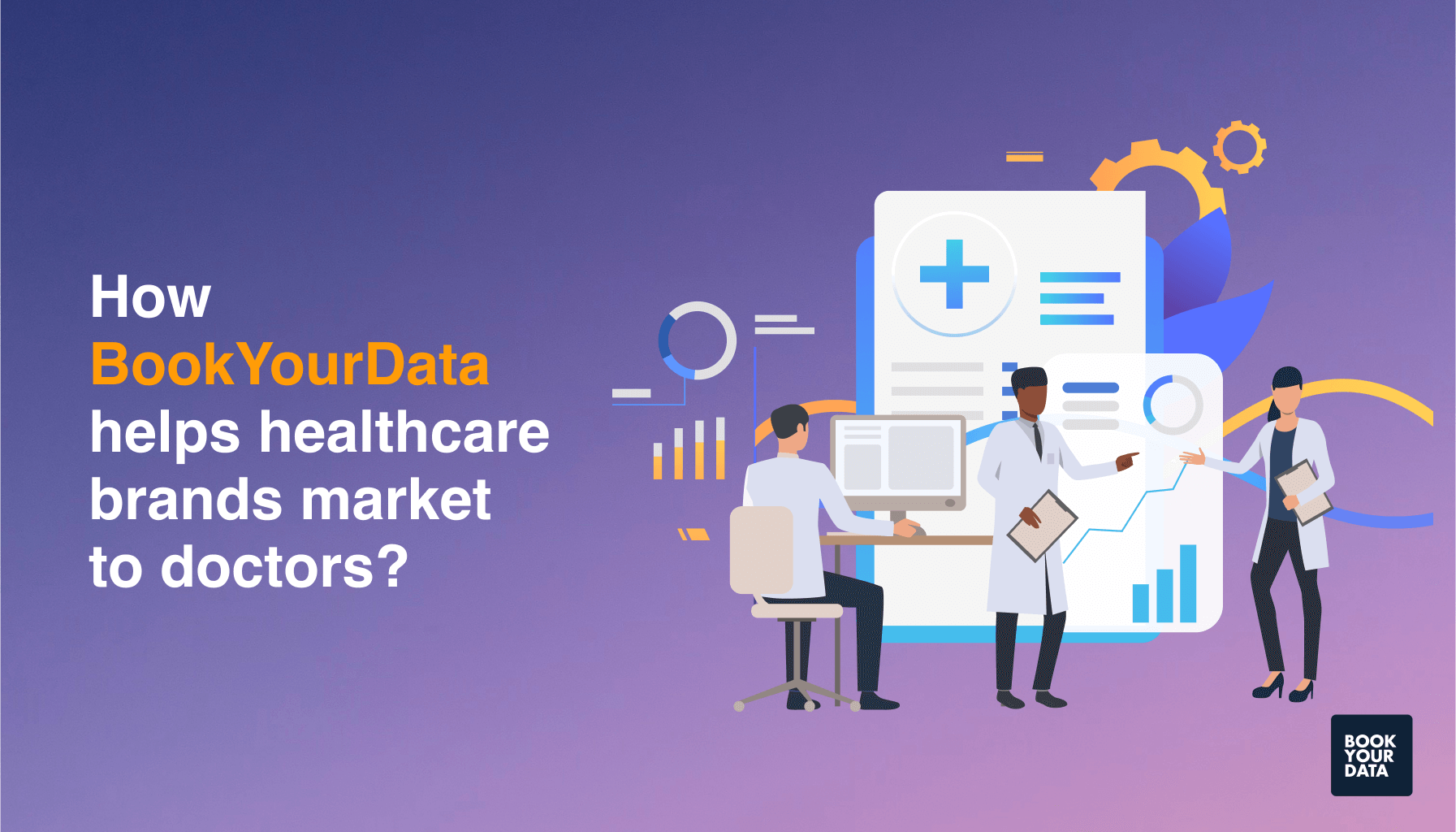
BookYourData helps healthcare brands market to doctors by allowing marketers to buy an email list of different healthcare professionals. Marketers can purchase different medical email lists of doctors and HCPs (Healthcare Professionals) from BookYourData to find and connect with them according to their specialty. This B2B prospecting platform allows businesses to review different lists before purchasing and also build their own contact list customized according to their requirements. There are different pre-built, accurate healthcare email databases available that include addresses and phone numbers.

What are the reasons to market to doctors at private practices?
The reasons to market to doctors at private practices are to increase visibility, generate patient referrals, educational engagement, build brand and value, and showcase solutions.
Businesses can increase visibility by marketing to doctors at private practices because these doctors are focusing on specific areas of medicine and attracting patients with unique needs. Marketing to these specialists helps companies reach a highly targeted audience interested in specialized products or services.
Generate patient referrals by building relationships with doctors who privately practice. When physicians are familiar with a company's products or services and trust their efficiency, they are more likely to recommend them to their patients. Referrals from respected healthcare providers can significantly influence patient decisions.
Educational engagement involves marketing resources that can position a company as a knowledgeable and credible partner. Businesses can host webinars, workshops, or provide continuing educational material to engage doctors in meaningful ways. Educational engagement encourages physicians to stay connected and invested in the company’s offerings.
Building brand and value is possible by consistent and strategic marketing to private practicing doctors. When doctors see repeated, value-oriented messaging tailored to their practice, they begin to associate the brand with quality and professionalism. Private practicing doctors also remember and recommend a well-regarded brand.
Showcasing solutions to private practicing doctors is important since they are often decision-makers who need efficient, evidence-based solutions to maximize patient care. Marketing directly to them offers the opportunity to present how a product or service addresses specific clinical or operational challenges.
Why is marketing to doctors different from general B2B marketing?
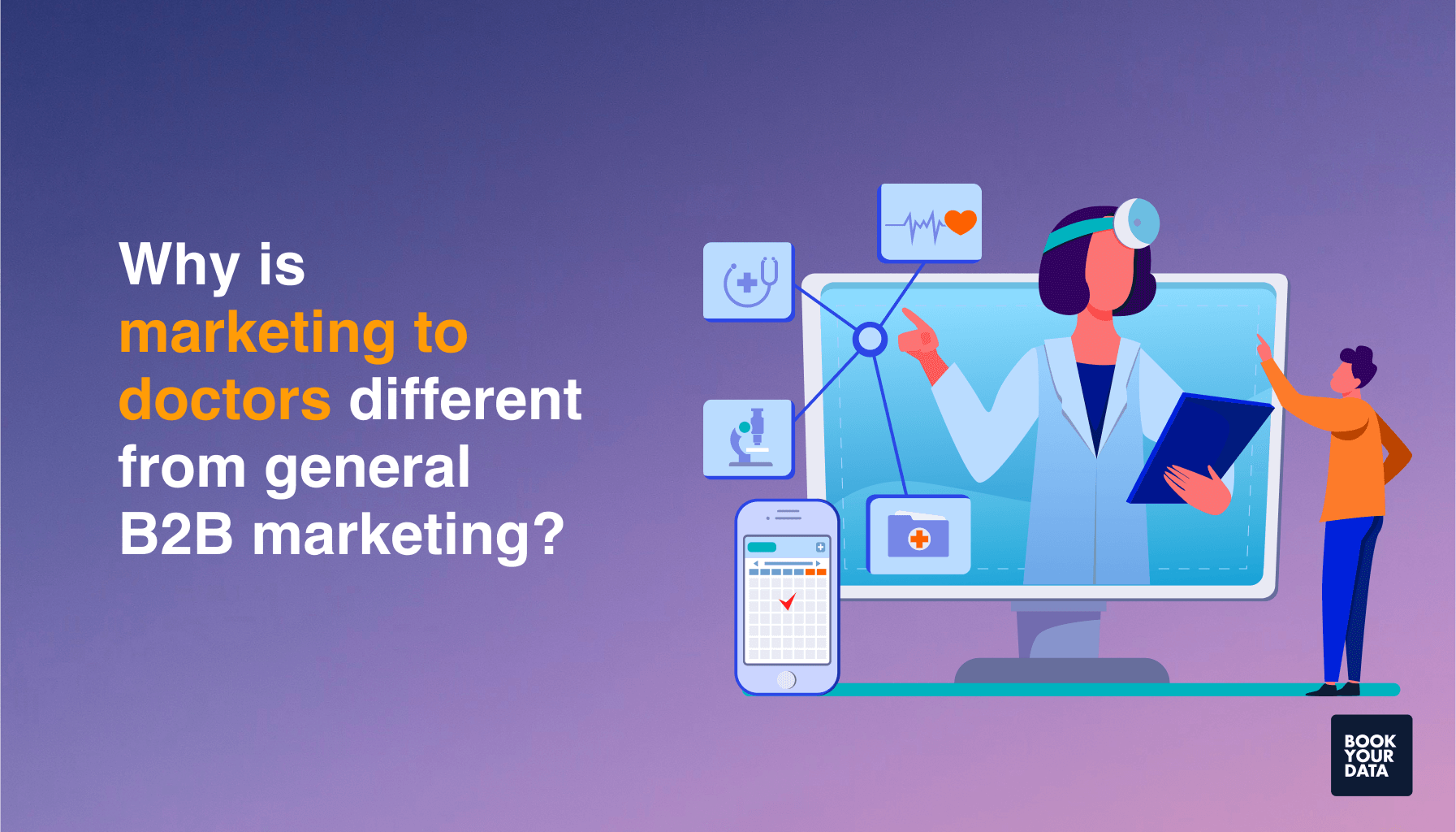
Marketing to doctors is different from general B2B marketing as it demands a focus on education and credibility over sales and understanding of regulatory constraints such as HIPAA. It also requires creating personalized content that is relevant to doctors instead of being a general sales pitch.
What are the best lead generation strategies for marketing to doctors?
The best lead generation strategies for marketing to doctors include building a strong online presence by creating a user-friendly website. Some other lead generation strategies include creating valuable content, such as blog posts, and utilizing paid advertising, such as Google Advertisements.
What stages of the B2B marketing funnel are most important when targeting doctors?
The stages of the B2B marketing funnel that are most important when targeting doctors are the consideration and the decision stage. The consideration stage is important because the doctors are actively researching solutions and need more than just basic information. The decision stage is also known as the conversion stage because this is when the leads are ready to commit.
What channels are best for marketing to doctors?
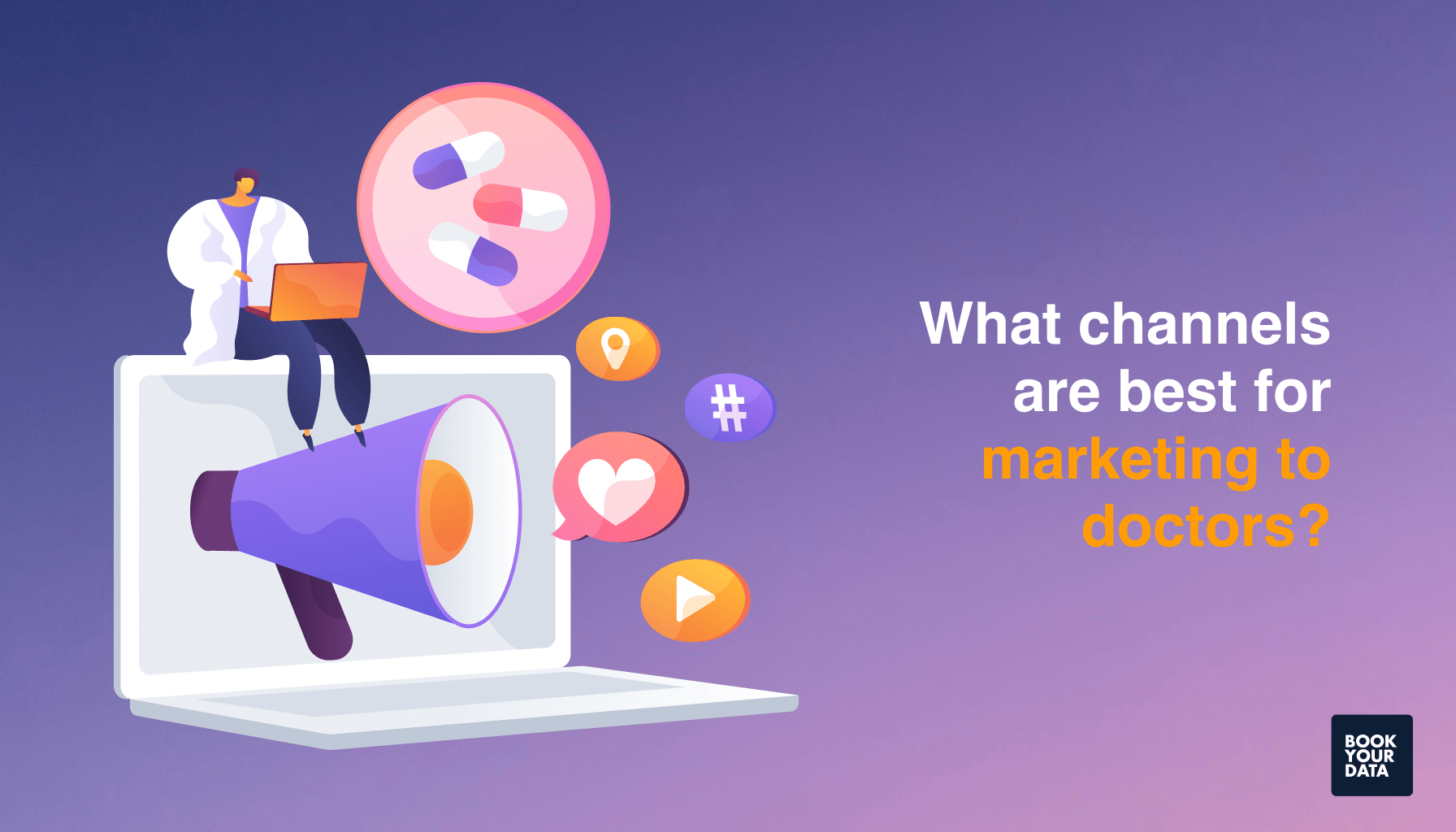
The channels that are best for marketing to doctors are email marketing, LinkedIn, digital advertising through Google Ads, and social ads. Social media platforms such as Facebook and X are also best for marketing to doctors.
How effective is email marketing when targeting doctors?
Email marketing is very effective when targeting doctors because doctors prefer email for receiving industry news, product updates, and educational material. Another reason why email marketing can be effective is that you can automate your email campaign and save time while enjoying a high return on investment.
How can account-based marketing be used to effectively reach doctors?
Account-based marketing can be used to effectively reach doctors, but first, businesses need to identify target healthcare accounts, such as hospitals or large practices. Then you can make account-based marketing effective by understanding your selected audience's specific needs and creating highly personalized content according to their specialty and needs.
How can AI marketing tools improve campaigns targeting doctors?
AI marketing tools can improve campaigns targeting doctors by analyzing their behavior and preferences to deliver relevant case studies and educational content. Businesses can also use AI marketing tools to automate the process of sending personalized messages and save time.
What types of companies typically market to doctors?
The types of companies that typically market to doctors are pharmaceutical companies, medical device manufacturers, healthcare technology providers such as telemedicine, CME (Continuing Medical Education) providers that offer training and certification, and healthcare service companies such as labs, insurance, and practice management solutions.
What is a healthcare email list?
A healthcare email list is a database that contains verified contact information for healthcare professionals and organizations, and includes doctors, nurses, hospitals, and clinics. Businesses use healthcare email lists or even free email lists for marketing their products, hiring staff, or building relationships with other professionals in the medical industry.
Why target physicians with email lists?
Businesses need to target physicians with free email lists to reach a high-value, decision-making audience. Doctors influence purchases for medicines, devices, and healthcare services.
What is the benefit of selling email lists to dentists?
The benefit of selling email lists to dentists is that email marketing provides dentists with a direct and personal way to communicate with their patients.
How can you reach chiropractors through targeted email lists?
You can reach chiropractors through targeted email lists by acquiring targeted email lists from B2B data providers who offer verified and customizable databases.
Are veterinarian email lists effective for targeted healthcare marketing?
Yes, veterinarian email lists are effective for targeted healthcare marketing because they allow for direct, cost-effective communication with a specific audience of professionals.
How do email lists help marketers connect with registered nurses?
Email lists help marketers connect with registered nurses by providing a direct, targeted, and personalized channel to communicate valuable information, promote products or services, recruit talent, and gather feedback. B2B data providers like BookYourData offer registered nurses' email lists that are accurate and up-to-date.

How can you market to pharmacists using email lists?
You can market to pharmacists by using email lists and creating personalized and targeted content that triggers their pain points.
What is the value of selling email lists to nurse practitioners?
The value of selling email lists to nurse practitioners helps you connect with the right audience and grow your healthcare list. Nurse practitioners influence patient care decisions and often prescribe medications or recommend treatments.
[CTA1]
[CTA2]



